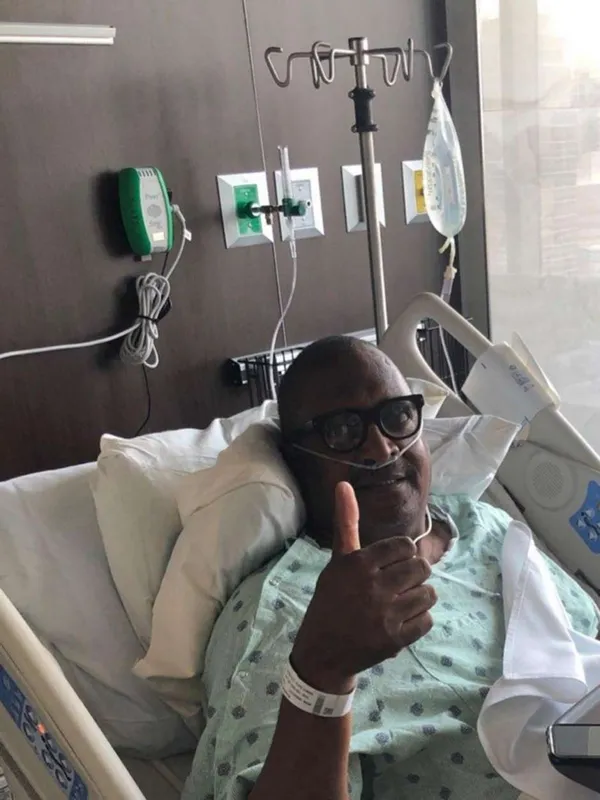Beyoncé’s dad, Mathew Knowles, reveals his breast cancer diagnosis, urging men to recognise the warning signs and get screened early.
Mathew Knowles, the father of global superstar Beyoncé, is opening up about his personal battle with breast cancer in a bid to raise awareness about the disease in men. Knowles, diagnosed with stage 1A breast cancer in 2019, urges men to take the condition seriously and prioritise early screening.
Knowles first sought medical attention after noticing bloody discharge from his nipples, a lesser-known symptom of breast cancer in men. Following a series of tests, including a mammogram, ultrasound, and biopsy, doctors confirmed his diagnosis. He later underwent a mastectomy.

“There’s an amount of shame sometimes that men have with male breast cancer, but the more you talk about it, the more you are open, it loses its power,” Knowles told Healthline. “For me, it does, so I talk about it.”
Mathew Knowles Urges Men to Consider Genetic Testing
After his breast cancer diagnosis, Mathew Knowles discovered that he carries the BRCA2 gene mutation, which elevates the risk of several cancers, including breast, prostate, and pancreatic cancers. Knowles is now using his platform to stress the importance of genetic testing, especially for those with a strong family history of cancer.
Read more: Understanding Breast Cancer Risk Assessment Score
The BRCA2 mutation prevents tumour-suppressing genes from functioning normally, increasing the likelihood of developing cancer.
“If a man has a BRCA2 mutation, they have a 6% absolute risk of having breast cancer in his lifetime,” said Dr. Wassim McHayleh, a medical oncologist, in the interview with Healthline. This is 100 times higher than the general male population.
Knowles’ family history is marked by multiple cancer-related deaths. On his mother’s side, several relatives, including an aunt and her two daughters, died from breast cancer. On his father’s side, four uncles succumbed to prostate cancer. With this in mind, genetic testing became a critical step for Knowles and his family.
“It’s critical. I wouldn’t want my kids or my wife or my brother, sister, not to be informed,” he said, emphasising the need to share genetic information with loved ones.
“I’m perhaps even more grateful this discovery spurred my kids to take their own medical genetic tests to learn their own risks and better inform the decisions they make — my newfound knowledge also became theirs.”
Early Detection and Routine Screening Key to Saving Lives
Mathew Knowles stresses the critical role of early detection and routine health checks for men. Since his breast cancer diagnosis, he has undergone annual mammograms, prostate MRIs, and regular PSA testing to monitor his health closely.
He credits early detection with saving his life, and encourages others to act promptly if they notice any unusual symptoms.
“I understand the earlier you find something, the better the results,” he shared, reflecting on his background in diagnostic imaging, which taught him the importance of catching issues early.
Doctors recommend men at higher risk, such as those with a family history of cancer, perform monthly self-breast exams starting at age 35. Men may also need to undergo annual clinical breast exams and mammograms for early detection.
Watch now: Breast Cancer: Symptoms, Risk Factors and Treatment
Spreading the Message to Save Lives
Knowles hopes that by sharing his experience, more men will recognise the importance of early detection and genetic testing. His work with awareness campaigns, like AstraZeneca’s BeBRCAware initiative, highlights how understanding family history and genetic risks can lead to life-saving preventative measures.
As a breast cancer survivor, Knowles remains dedicated to using his platform to inform others.
“I have a platform…I want to use this platform to save lives,” he said. “I’m challenging you to get screened — if not for you today, for your family and for your future.”
His advocacy highlights the urgent need for men to take health issues like breast cancer seriously and to undergo regular screenings, especially those with a genetic predisposition. Through his efforts, Knowles aims to break the stigma and encourage more men to take control of their health.
Read now:
- Colon Cancer Screening Should Start at Age 45
- Breast Cancer in Singapore: Prevalence, Screening Options, and Support
- Cancer Screening & Prevention
Watch now:
- Stomach Cancer By The Numbers: Symptoms, Diagnosis, Risk Factors, Screening and Early Detection
- Detection, Diagnosis & Management of GI Cancers in Asia
Image credit: Mathew Knowles via Facebook

